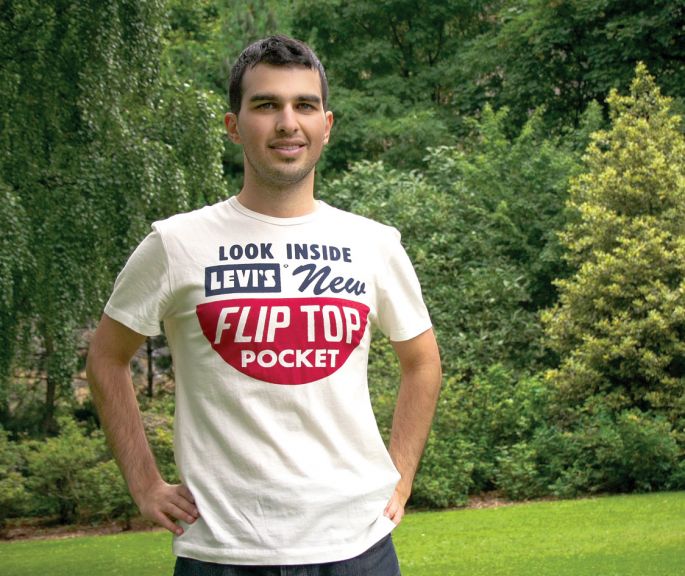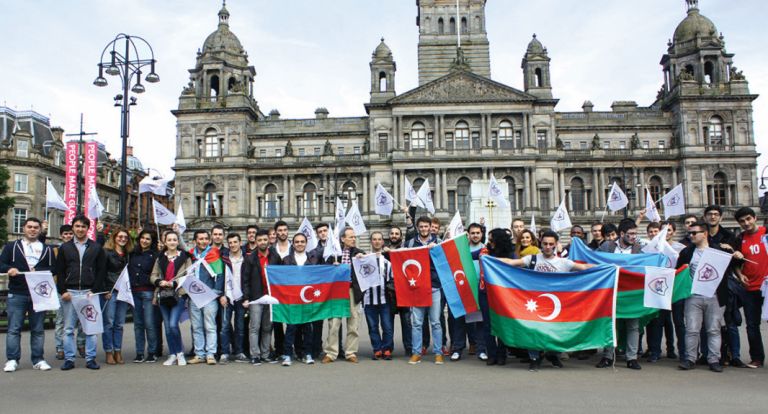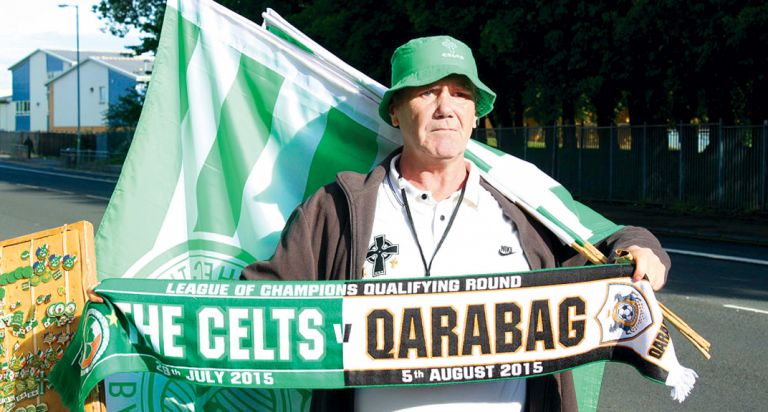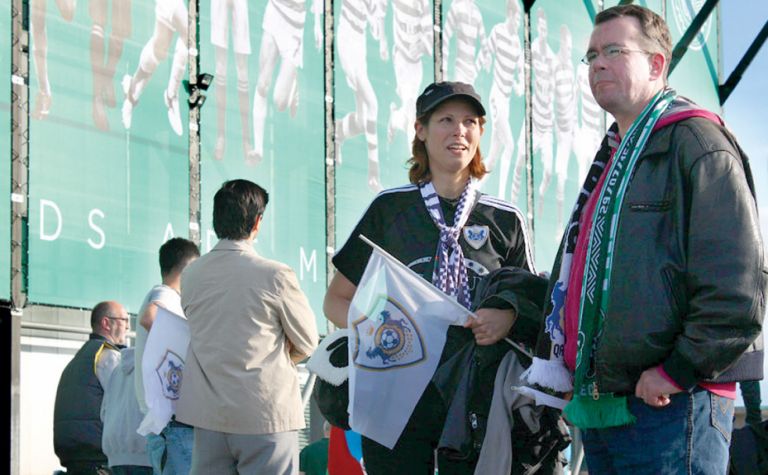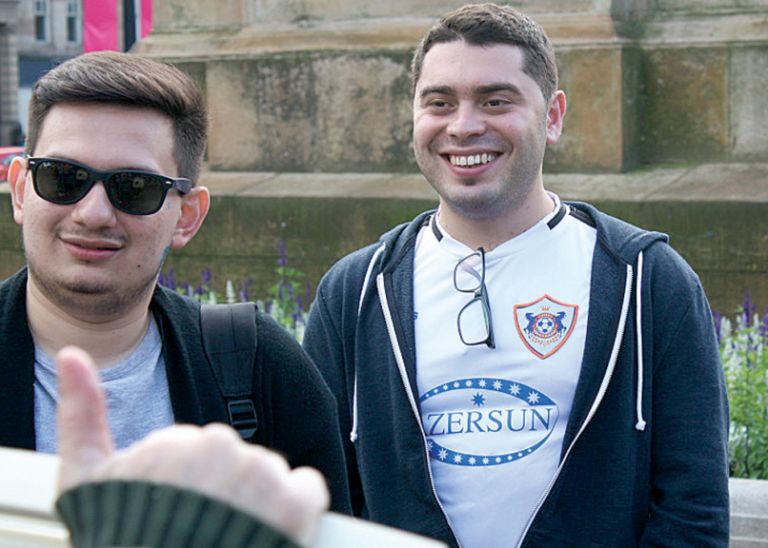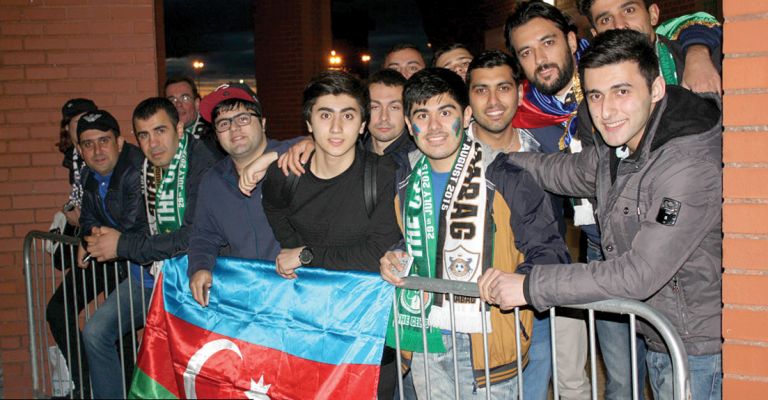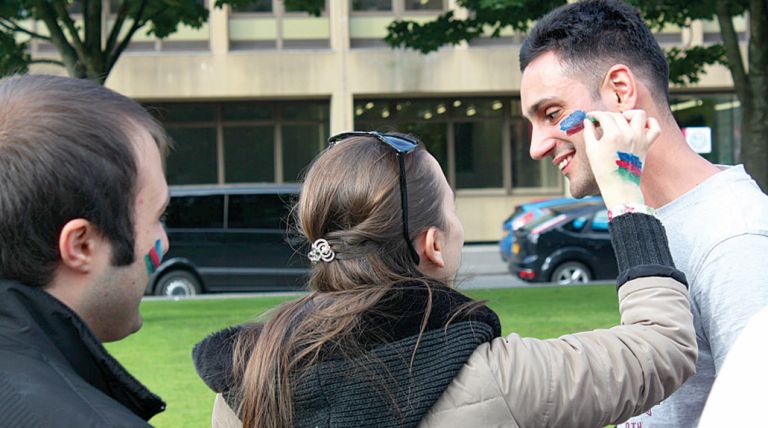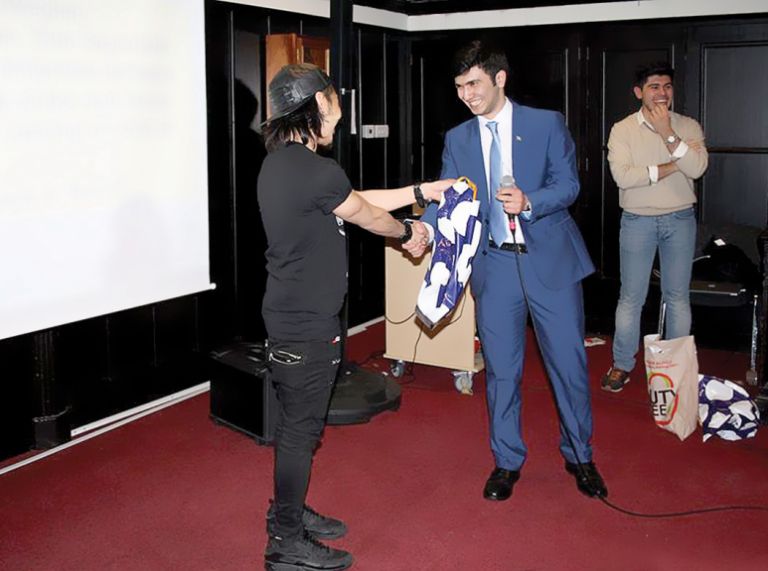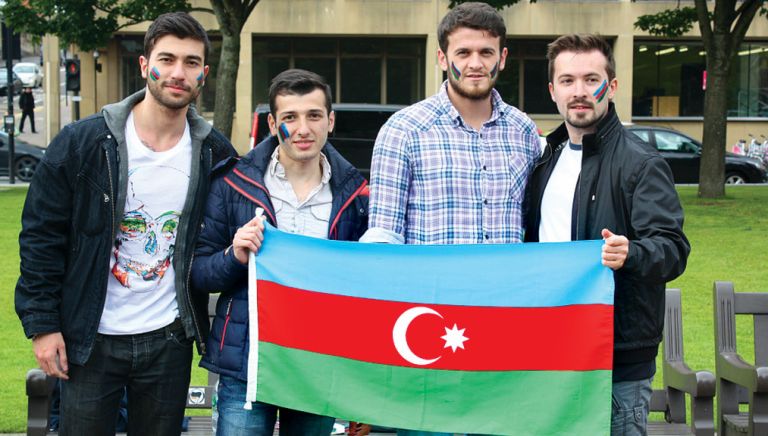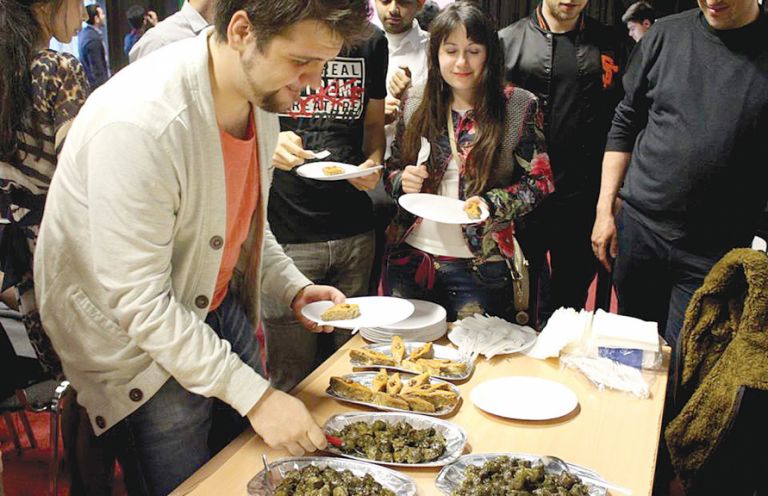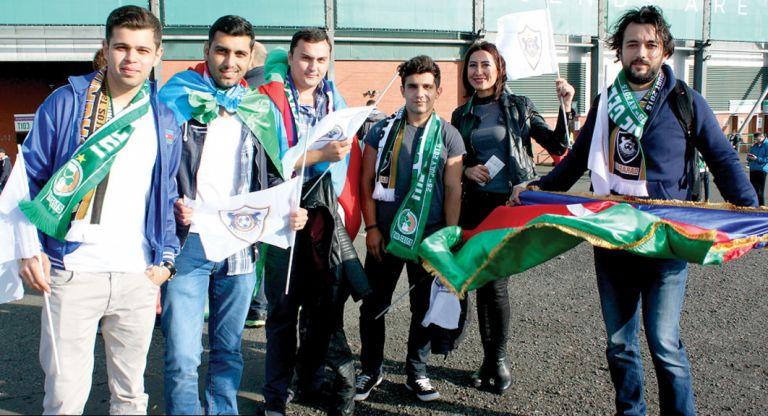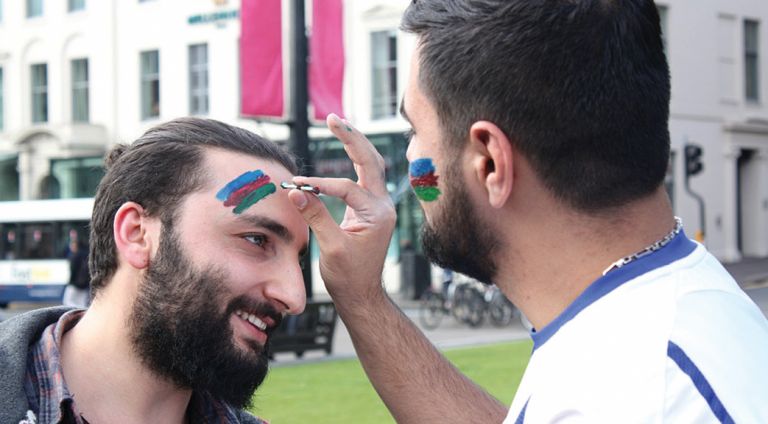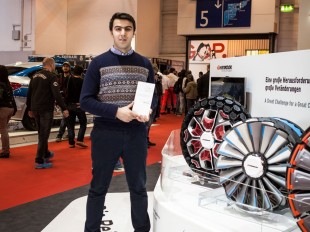The oil industry is the major link between Scotland and Azerbaijan and it's not uncommon to hear a Scottish accent on the streets of central Baku these days. But a small and increasing number of Azerbaijanis are also going the other way, as Visions found out during an interview with Glasgow-based Fuad Alakbarov, a 26-year-old Azerbaijani in the process of establishing a Scottish-Azerbaijani cultural society in Scotland.
When and how did you come to live in Scotland?
I came to the UK when I was 13. It was a totally different experience because I grew up in Azerbaijan. My father used to work in the oil industry in London and I joined him, then he said, ‘‘you know I’ve had enough of London, maybe I’ll give Scotland a try.’’ We tried it and we liked it and we have been here ever since.
Now nobody says I’m Azerbaijani, they think I’m Scottish, but I like to class myself as Scottish-Azerbaijani because I’ve lived half of my life here and half of my life there. But I respect both countries and count them both as my home.
What are your memories of growing up in Baku, how do you remember Azerbaijan?
Azerbaijan in my time was the dissolution of the Soviet Union, that’s why we had lots going on. Unfortunately we had the Karabakh War, which affected everybody. Despite that, after the war was finished, I had good memories. Of course the country was trying to get back on its feet, we had lots of poverty in Azerbaijan and in Baku, but on the other hand people were optimistic. That’s what I really liked about Azerbaijan - despite all the struggles people had hope of change for the better. If people had just focused on negativity, the country would have developed but not at the fast pace that we like to see.
That’s what I really liked about Azerbaijan - despite all the struggles people had hope of change for the better
What are your impressions when you come to Baku now?
It’s changed over the last two decades – it’s become more globalised, Baku has become more industrialised, more international. Back in my time it was a Soviet-style city with a good atmosphere but nothing else, but now Baku is one of the cities in the world striving for the spotlight, because we had these European Games, Eurovision and we have the Formula One coming soon.
In my town in Scotland [Glasgow – Ed.], people used to ask, ‘‘where are you from?’’ I used to say, ‘‘Azerbaijan’’ and they would say, ‘‘do you mean Afghanistan?’’ I would say, ‘‘no, no it’s Azerbaijan.’’ Then maybe one in every hundred people would say, ‘‘ah it’s a former Soviet Union country, oil and gas’’ etc.
Nowadays when you ask them about Azerbaijan, they tell you more than you require. They say: ‘‘Azerbaijan, we know you from Eurovision, the Flame Towers’’ and so on. So awareness of Azerbaijan in the world, including in Scotland, has really increased, which obviously makes me proud as well because despite the fact I grew up in Scotland, I think everybody should remember their roots.
Ok, so let’s talk about the Azerbaijani diaspora, can you summarise what the situation is?
In Scotland it’s growing, surprisingly. In Glasgow, the Azerbaijani population is declining, based on my research. Back in 2000 we had about 50 to 100 people; nowadays I think we have less than 50.
But the main Azerbaijani area of Scotland is Aberdeen. According to estimates, there are 300 people there, so that’s quite a healthy population. We aren’t the biggest ethnic minority in Scotland, but it’s growing … it’s grown by a third as far as I know. A lot of these families are from working families, many are oil workers because of Azerbaijan’s connection to Aberdeen, the oil hub.
There’s lots of the new generation coming through as well. Recently, there was a New Year’s celebration and around half of the people were kids, all from mixed families. The majority of Azerbaijanis in Aberdeen are from mixed families, but again we are not including, for example, Iranian Azerbaijanis, who sometimes go under the name ‘‘Iranian’’ because of their citizenship, or Turkish people as well, they always write ‘‘Turk’’ … it’s really hard to say exact numbers.
There are some students too and their numbers are growing, in Edinburgh especially there are quite a lot. We are trying to create a society because maybe all the Azerbaijanis know about each other, but a lot of people ask me and my friend, Nargis Morrison, to gather everybody together - it is easier to work together than separately.
We don’t want an Azerbaijani only exclusive club, it’s not like that, we are actually open to everybody and we are working with the Scottish government to launch it as soon as possible. I expect it will open by the end of December, because it has to go through the legal procedure. We are also thinking about offering activities for Azerbaijanis and people from different backgrounds. Which activities is tricky to say at the moment but the main ones will be a dance club and cooking classes so far. Because we are just starting, we cannot promise too much, we will see how it goes, but it will be a professional organisation. We are currently working on the committee board to launch it.
Does the Azerbaijani embassy hold events?
The Azerbaijani embassy hosts an Azerbaijani night or cultural awareness night each year, organised by Azerbaijani students in Glasgow. I have been to two of them and I remember that in 2010 or 11, there were about 50 people who turned up, the majority of them Azerbaijanis. But this year it was so big that we had to actually limit the number of people to 150, although there could have been 500 such was the demand. Back then we had mainly Azerbaijanis coming, but this time we perhaps had more foreigners and Scottish students. We teach people about Azerbaijan’s history, culture, frequently asked questions, things like that.
We have done the Justice for Khojaly campaign as well, about the genocide that happened in Karabakh. We had about 40 people, the Azerbaijani embassy helped a lot with that, they supplied us with materials, they sent us lots of brochures, books, shirts, so it was really good, but I would like to see more support from the Azerbaijani embassy.
What is the society you are forming going to be called?
So far we haven’t decided but probably the Scottish-Azerbaijani Association or the Azerbaijani-Scottish Association, something like that. We don’t have an organisation at the moment, we have just a Facebook group, but I believe an organisation has far more impact. Also the Scottish government will help us with funding, because nowadays especially in times of austerity it’s very, very hard to survive. The Scottish government, I am very grateful to them, are allocating us some funds so we can do basic things.
What are its main goals going to be?
The main goals are going to be, in the short-term (the first year) just to keep all the Azerbaijanis together and to introduce Azerbaijani culture to Scottish people. Also we would like to introduce some Scottish culture to Azerbaijanis as well, because there are a lot of mixed families. It’s good to work together because it brings more friendship, it brings more connections and there are lots of Scottish expats in Azerbaijan too. I have a twitter page through which lots of Scottish expats have contacted me because they want to know more about Azerbaijan.
It sounds very promising. What is it that really attracts Azerbaijani people to Scotland – is it mainly the oil industry?
People move here because of the oil, especially to Aberdeen, which is a [big] oil area. Some Azerbaijani oil workers come here and some Scottish workers move to Baku, exactly the same. Because of the laws it’s very hard for Azerbaijanis to immigrate to Scotland, but some people are happy and established in Aberdeen. You never know for how long, we might have a slide later on. I remember there used to be only a few families; now there are 300 people. It’s quite a good start, but the numbers aren’t constant.
Is it easy for Azerbaijanis to live in Scotland?
The majority of people are happy in Scotland but I think even Scottish people will agree that most people don’t like the Scottish weather because it’s always raining. That’s the biggest con, but otherwise people are really happy with Scotland. A lot of people have integrated very well, but – and this is why we set up the organisation as well – there are a lot of families from the new generation concerned about learning about Azerbaijani heritage, because some of them are from a Scottish background.
People move here because of the oil, especially to Aberdeen, which is a [big] oil area
One of the problems we have as well which a lot of people are complaining about, myself included, is that there used to be direct flights from Aberdeen to Baku, but nowadays you need to go through England and it becomes long distance. Hopefully the Azerbaijani and Scottish governments will change this, and visa issues as well. Otherwise, it’s going very well - Glasgow, Edinburgh and Aberdeen are the main cities where Azerbaijanis are based. Dundee has maybe just a few people, students.
What was it like to have the Azerbaijani football champions FK Qarabag play against Celtic in Glasgow on 29 July?
Well this was quite an unusual story. My friend and I used to actually joke that Qarabag would be drawn against Celtic and that joke actually came true, but Azerbaijani football over the last few years has really developed, so I knew that Celtic and Qarabag could face each other.
When UEFA drew them against each other, I set up an event page for people to gather. So about 200 people came to Glasgow’s George Square. It wasn’t all Azerbaijanis, there were some Scottish fans actually who were supporting Qarabag, and we had lots of people coming from Belfast. One person even came from Germany just to see the game. And the Qarabag team - thanks to them - provided free tickets and flags. We took everyone directly to Celtic park from Glasgow and I think most Azerbaijanis were fascinated by why Glasgow is one of the most infamous cities in the world, because there was no trouble at all.
Following this game a lot of people had learned about the Karabakh War and the struggles of the Qarabag football club
We went to the stadium, the Celtic fans obviously supported their side. We chanted, about 250 people against 40,000 - an unfair number - but we chanted as much as possible and in the end, even Qurban Qurbanov, the Qarabag manager, said that we chanted no worse than the Celtic fans. It was a friendly atmosphere and good to see a lot of Azerbaijani people speaking to Scottish people in a really friendly manner. We exchanged flags for scarves; we gave them Qarabag flags and they gave us Celtic scarves. Despite the fierce competition, both sets of fans were friendly and professional and I would like to thank the Celtic fans for a very hospitable reception.
Did the Scottish fans know anything about the Qarabag team at all?
The Scottish fans didn’t know anything about the Qarabag fans to be honest but following this game a lot of people had learned about the Karabakh War and the struggles of the Qarabag football club. The club represented Aghdam, which is unfortunately a ghost town now. Qarabag represents the hope of one million refugees in Azerbaijan but Celtic was also based on Irish migrants, so both teams actually represented refugee teams. That’s why they had a special respect for each other. And most Scottish fans were surprised that Qarabag were a good team.
You mentioned that you are a photojournalist, could you tell me about that?
I’ve been doing photojournalism since I left university. I’m currently working on a project called Humans of Glasgow, like Humans of New York. It involves interviewing people and learning about their life stories. I’ve also a lot of projects on Dungaval, which is a detention centre in Scotland for immigrants.
Is there anything else you would like to mention?
I just want to raise the issue of Khojaly.* I would like to see more support for the recognition of Khojaly. It has already been recognised by a few American States and a few countries as well, including Pakistan. I would like to see the same approach not only in Scotland but in the UK as a whole, because I believe it deserves recognition. Khojaly and the Karabakh refugees are not well covered by the media, but that doesn’t mean that the problem doesn’t exist.
*On the night of 25-26 February 1992, 613 residents of the town of Khojaly were massacred as they fled besieging Armenian forces.
All photographs are courtesy of Fuad Alakbarov and relate to the recent Champions League encounter between Celtic and FK Qarabag in Glasgow and a diaspora event sponsored by the Azerbaijani embassy in Scotland.
